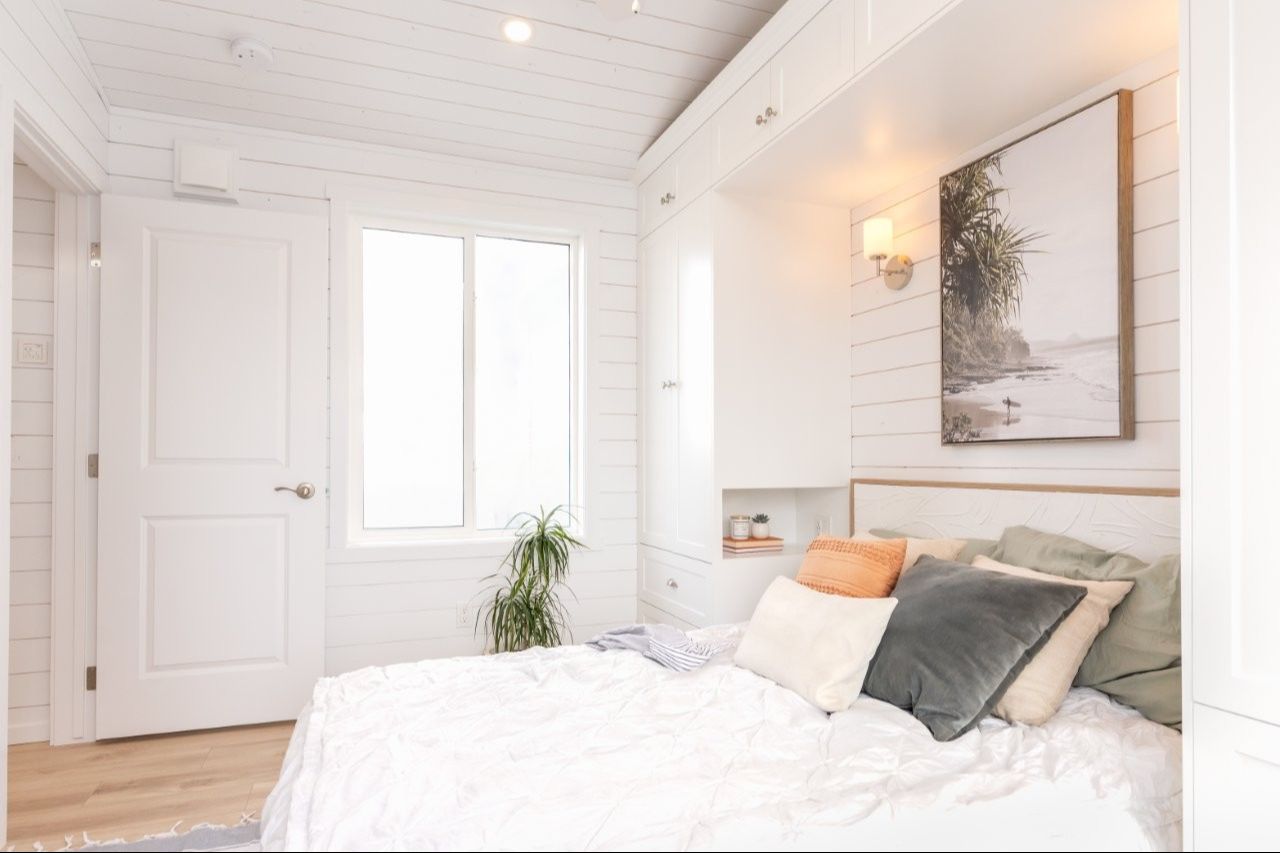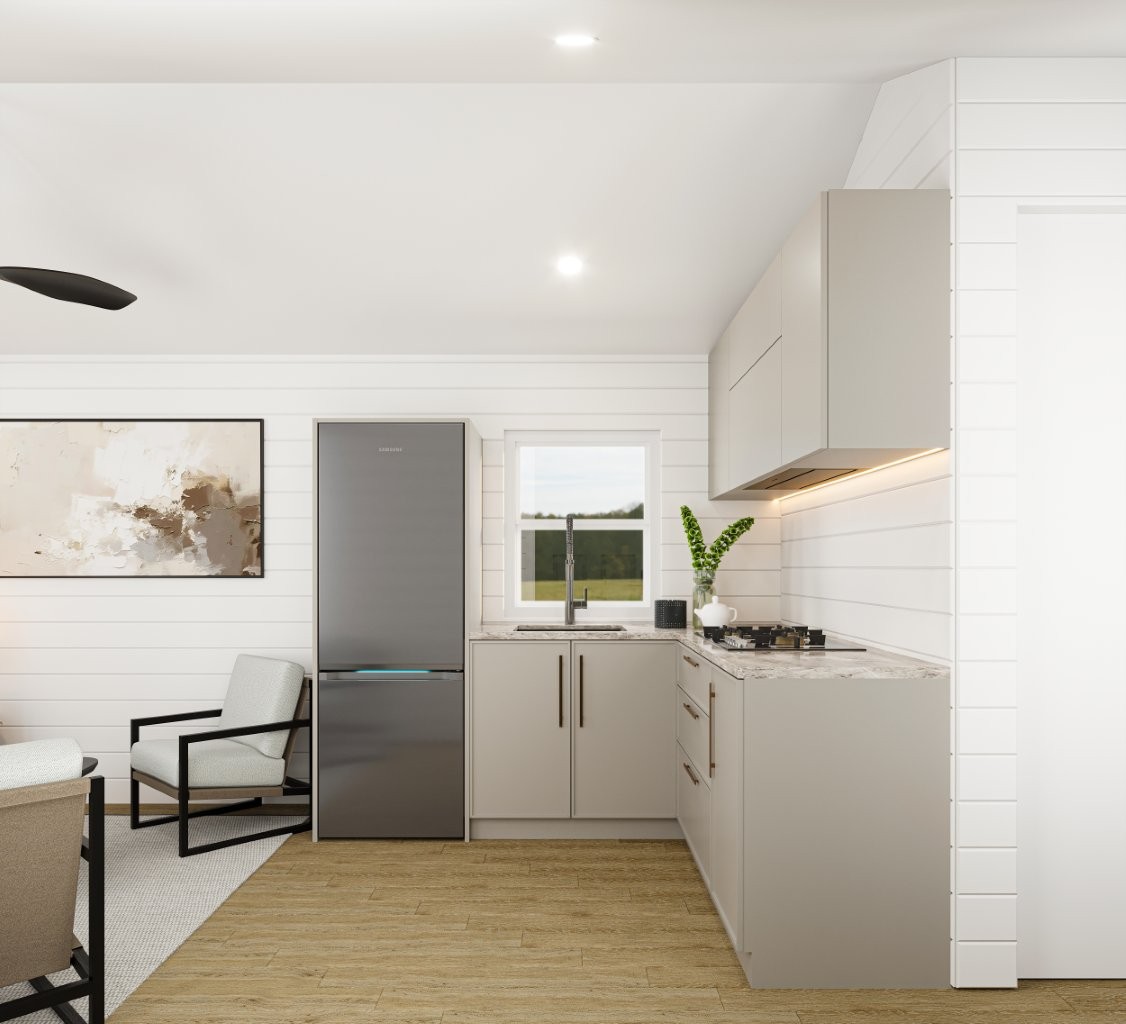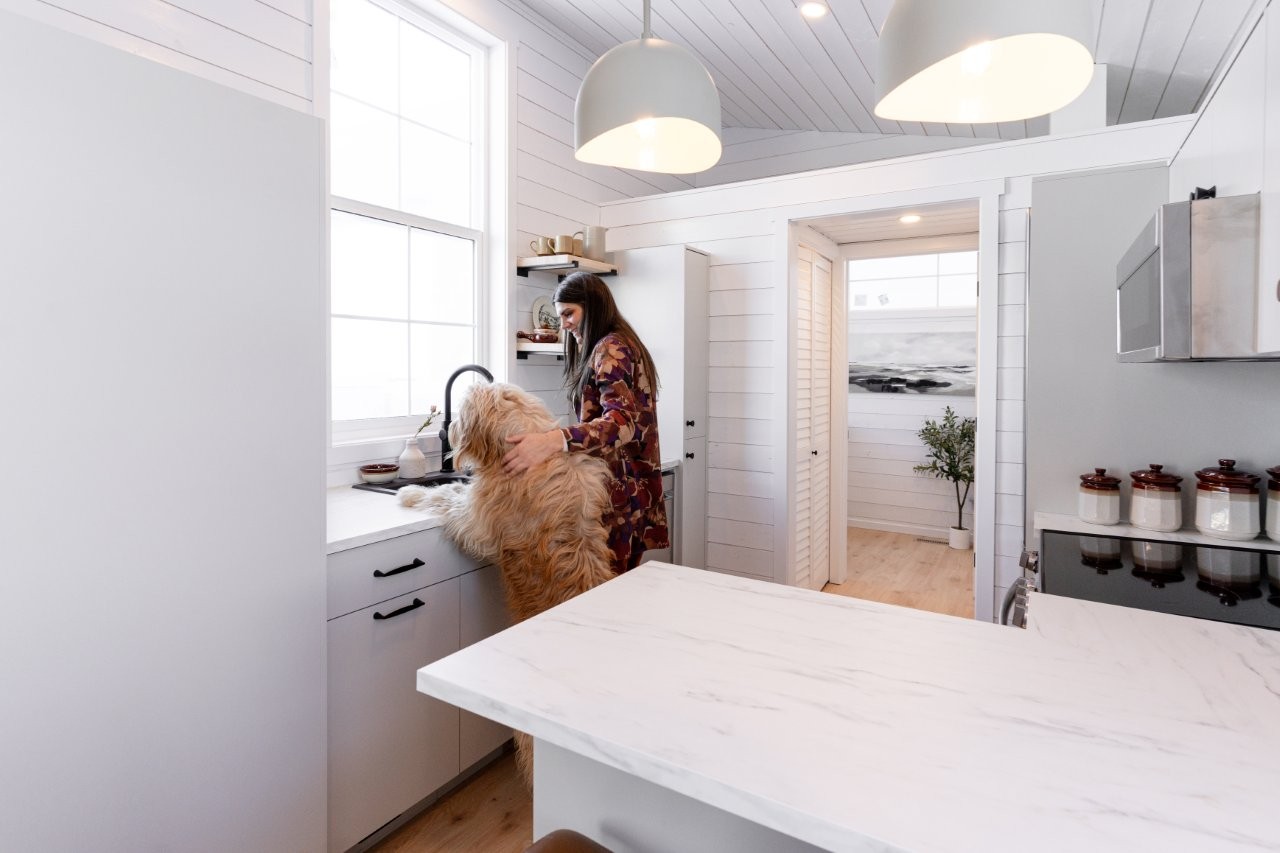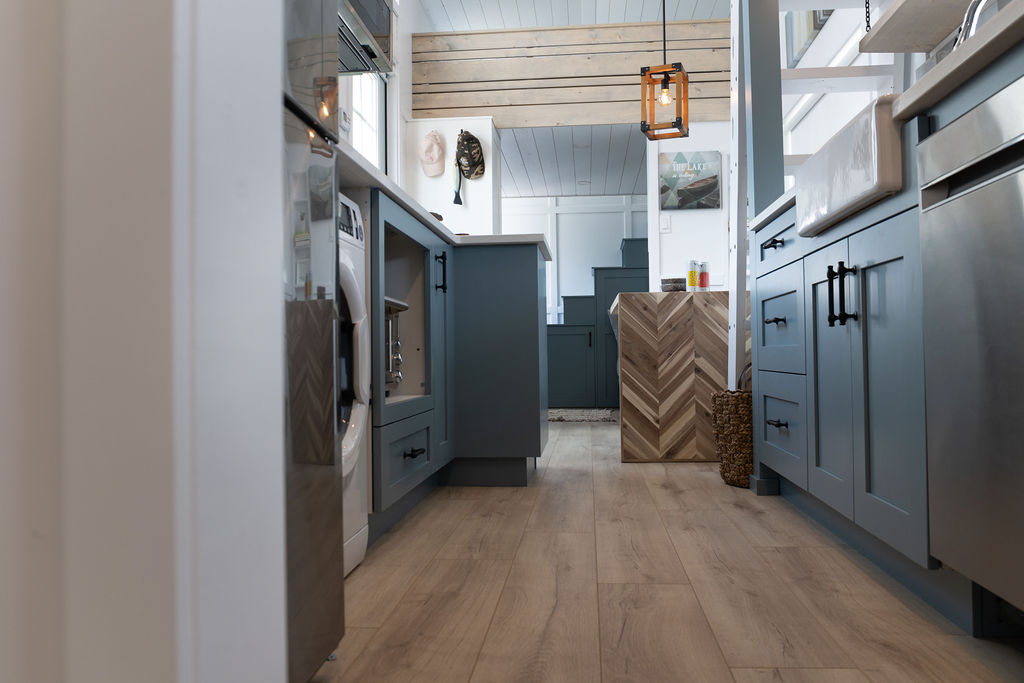Tiny Home RV vs Park Model vs Modular Dwelling: What’s the Difference?
Jun 26, 2025
You’ve seen them on TV, heard the buzz online, and now your phone’s feed is flooded with tiny homes. But once you dig into the details—some have wheels, others sit on a foundation, some feature lofts while others don’t—it all starts to feel confusing. So what is a tiny home, really? Today, we’re clearing things up: what a tiny home is, what it isn’t, and why those differences matter. Let’s dive in!
“Tiny home” isn’t a legal category—it’s an idea.
In building codes, there’s no official Tiny Home classification. Over the years, the term has come to describe any small space that's built people to sleep, hang out, and live in either part time or long term—for example a tiny home ay be:
-
A petite apartment in a rural setting
-
A backyard suite or garden suite beside your main house
-
A certified RV parked lakeside
-
A container or park model in a campground
If we were to nail down a definition, we would suggest it’s simply a compact, deliberately minimalist living space—designed for intentional, small-footprint living. Most fall between 100–400 sq ft (some use 500 sq ft as the cutoff) Within that broad spectrum lie some key categories—each with its own rules, uses, and expectations.

Why Knowing the Difference Matters
Choosing between a Tiny RV, a Park Model, or a Modular Dwelling matters because your plans, your wallet, your bank, insurance company and your municipality all see them differently:
-
Usage: RVs and park models are built under RV standards—they’re meant for travel or seasonal use, not full-time residence . Modular dwellings, on the other hand, meet residential building codes and are designed for permanent living.
-
Permitting & Zoning: Your town’s bylaws will define whether your tiny space can stay year-round or needs reclassification as an ADU or single-family home.
-
Insurance & Financing: Tiny RVs and park models get RV insurance and loans; modular dwellings are financed via mortgages and insured like real homes.
-
Insurance Brokers / Financers / Municipalities: When you talk to them, words matter. Calling yours a "Modular ADU" means a different set of rules—and a different set of approvals—than calling it a "Tiny Home RV."

So... Which One’s Right For You?
-
Tiny Home RV: Can be customized to your needs, are built for cold weather climates and can be comfortably used in any Canadian season,- legally a recreational vehicle. Great for camp sites, and seasonal sites. Can have lofts for extra living space. -If your municipality reads RV, you’re boarding seasonality. Built to CSA Z240RV in Canada or ANSI 119.2 in the USA.
-
Park Model RV: Built to CSA Z241 in Canada or ANSI A119.5, in the USA. Under 580 sq ft, meant for park or campground use. These offer more comfort than RVs—but still restricted to seasonal habitation. They carry VINs, need RV financing, and aren’t valid as a permanent dwelling. Has the same concept as an RV, but wider than 8'6" and needs permits for transport.
-
Modular Dwelling / ADU: Built to CSA A277 and local residential building codes. Delivered in modules, set on foundations or piles, permanent utilities—just like a house. Will increase property value and can be used as single family dwellings or secondary suites. Ideal for long-term living, rentals, or multi-generational housing. These can be mortgaged, insured as real estate, and fully legal via permit .
| Feature | Tiny Home RV | Park Model RV | Modular ADU / Home |
|---|---|---|---|
| Regulatory Code | CSA Z240-RV (RV) | ANSI A119.5 (RV) | CSA A277 + Residential Code |
| Permanent Use | Not for year-round | Seasonal use only | Yes—year-round, fully legal |
| Transportable | Yes—towable | Yes—but heavy-duty | No—set on foundation/piles |
| Financing Type | RV loan, RV insurance | RV loan, RV insurance | Mortgage, Home insurance |
| Ideal Use Cases | Vacation, flexible travel | Camp retreats, Airbnbs | Full-time living, rentals, ADUs |

You might be thinking, “But don’t people live in tiny homes year-round?” The short answer is: absolutely! Across the globe, folks live in travel trailers, buses, vans—and yes, tiny homes—full-time. These setups can be safe and comfortable when built with proper safety standards. But regardless of how they’re used, each structure still carries its own legal classification based on certification.
Curious which type of tiny home fits you best?
🎯 Download our [Tiny Home Planning Guide] to get started.
Ready to explore layouts you could actually live in?
🏡 Check out our model floorplans here.
Feeling inspired and ready to start your journey?
📅 Send us a message or book a call [HERE] to take the next step.
See you next time,
Jen & The Teacup Team

